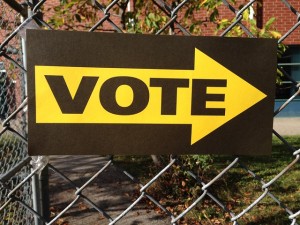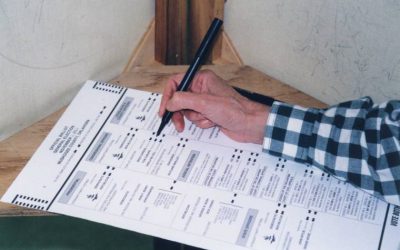Updated Online Candidate Client Service Offerings
 While we are known for our campaign website services, some clients are surprised to know that we also perform other related web services.
While we are known for our campaign website services, some clients are surprised to know that we also perform other related web services.
Our Online Candidate Add-on Services are designed to help build your online presence beyond the website.
Save time and effort. Each service is self-contained and a fixed price. They are designed to meet the needs of new political campaigns and candidates.
The Mailchimp Setup and Integration is our latest service.
Here is a quick rundown of our additional services:
Social Media Graphics
We will rescale and modify your website header so it can be used as your Facebook cover image and Twitter account background.
Site Launch Package
This service is designed to help your site get an initial promotional boost to rank well in the search engines. We handle all the details and turn the accounts over to you on completion.
Site Launch Package + Social Media Setup
Includes the services of the Site Launch Package and Social Media Graphics, plus setup of your campaign Facebook Page and Twitter account.
Mailchimp Setup and Integration
Save time and get your email campaign started the right way. Let us set up and configure your Mailchimp account so you can concentrate on your campaign.
Custom Design Upgrade (Lite Package and Monthly Option)
Turn your template-based design into a custom look. We’ll create a website header with your campaign colors, logo, background and candidate head shot. We also modify your site colors, font and background for a unique look.
Initial Site Content Setup
Save time with initial content setup. We’ll arrange your site text and images for a pleasing design. After that, it’s all in your control. This site setup is performed ONCE with the materials provided. (This service is included with our Enhanced Website Package.)
Any website add-on service can be ordered with your initial website order or as an add-on at a later time.
Voter Data
Select from demographic, issue categories and even voting history. Your list is provided in different formats including mail, phone, walk, telemarketing and standard CSV. Use with IP Targeting, mailings and other purposes.
IP Targeting Services
By matching a physical address to a specific IP with extreme precision, IP Targeting becomes a secret weapon for political campaigns. With up to 80% of traditional advertising failing to reach its target audience, consider how much money you could save by getting the right message to the right people at the right time. Learn more.
For more information, visit our political marketing services page.
How To Launch Your Political Campaign Website
 In the business world, the terms ‘soft launch’ and ‘hard launch’ refer to two different techniques for introducing a new product or service to the market. A soft launch is more subtle, for when a business wants to make a gradual roll-out. A hard launch, on the other hand, is designed to generating buzz right away.
In the business world, the terms ‘soft launch’ and ‘hard launch’ refer to two different techniques for introducing a new product or service to the market. A soft launch is more subtle, for when a business wants to make a gradual roll-out. A hard launch, on the other hand, is designed to generating buzz right away.
The same techniques apply to websites. Often an organization will do a soft launch, and they may have a limited number of users try the service before it is rolled out to the general public.
It’s typical for a candidate’s website to have a ‘coming soon’ page in the days or weeks prior to an official candidacy announcement. Then, when the time is ready, the site goes live for voters.
All excited about the launch, an announcement is made to friends and supporters.
But when they search Google for the candidate’s name, they find – nothing.
Surprise! The site isn’t listed in Google at all.
Here’s why: If you look for Google to have your site listed in the search results immediately after a brand new site goes live, you will probably be disappointed. It takes time for search engines to index a new website.
However, there are ways to speed up the indexing process. An early soft launch is one method.
By doing an early soft launch of your site, you may not attract human visitors, but it may attract search engine spiders. Spiders are the search engine software that crawls the web looking for new or updated content. Simply having a few links from your social media accounts is enough to trigger a spider to visit and index your website.
Another benefit to a soft launch is that you can have a few trusted users go through the site first. They can give you feedback and point out any errors they find before the whole world sees them.
You may think that you’re going to lose all the buzz from a hard launch with a soft launch, but that’s not the case. A soft launch is only to a small group of individuals, so plenty of opportunity remains to drive awareness through a hard launch.
Some candidates may not have the option of a soft launch. Some judicial candidates, for example, cannot start campaigning before a particular date. A live website may put them in violation of local election laws.
Political Website Launch Checklist
Use this checklist to make sure your site is ready to go live for the public.
Fill out your site settings
The Site Settings page in your Online Candidate admin covers all of the major website configurations, including form settings, page options, disclosure options and custom code insertion. As we’ve added features over the years, the page has become longer, but we’ve found it’s easier to keep everything in one place. Make sure you have all the sections configured the way you want before you go live with your site.
Titles and meta data
When creating your site pages, the page title is the most important element for SEO and is also important so that users know what’s on the page. Make sure your page titles are different on every page and that the title relates to that page’s content. The meta descriptions should also be short and to the point.
Proofread your content
Once you have your site content ready to go, check it over. Even if you’ve already read it, read it again. Then get someone else to read it. Someone will usually find an error. Streamline your text as much as possible. Break up large text blocks into shorter paragraphs. Add clear headings throughout, and use lists so that readers can easily scan the content. Don’t forget about dynamic text too, such as quote and alert boxes (which you can add by applying a style in the page editor).
Make sure your spelling and grammar, consistency and tenses are correct. Again, have someone you trust give your content a final read.
Call to actions in place
Don’t assume that your visitors will know what to do after reading a page on your website. They won’t. All of your pages should have a call to action. For most pages, this will be a reminder to vote on a primary or Election Day. Calls to action also include volunteer or donation requests.
Check your links
Don’t just assume all the links in your site content work. Check them out by clicking on them, especially links to outside websites. Sometimes people don’t copy the links properly for external sites.
All Pages Added To Navigation
When generating your site, be sure to add any new pages you’ve created to your website navigation.
Search Engine Accounts
To ensure that your site is indexed quickly, you should create webmaster accounts on Google and Bing. You will need to verify your site ownership by adding a small amount of code to your site header. Setting up search engine accounts will give you access to additional search engine tools and site information.
Set Up Analytics
Add your analytics or other tracking code to the “Sitewide analytics or tracking code” box under Custom Code Insertion section in the Site Setup. Google Analytics is free and simple to set up after you have a Google Webmaster Account, but you can use whatever tracking service you choose.
Additional instructions on how to set up search engine accounts and analytics can be found in the Online Candidate Site Administration.
Verify Your Email Accounts
Send a test message to all of your email address to make sure the accounts and forwards are working properly. Make sure the proper email addresses are assigned to your various forms, as well.
Refresh When You Go Live!
Once you go live with your campaign website, the temporary page will be replaced with your actual website. If you still see the temporary page after regenerating the site, try refreshing your browser. If that does not work, hold down the shift key while reloading the page. Sometimes browsers may cache a page for display and you need to force a reload.
Online Candidate offers a Site Launch Packages and a Site Launch and Social Media Setup option with our website packages to help you get a leg up with your own site launch.
Are You Voting Next Week?
 Next Tuesday is a big day for many of our US clients. But because it’s not a presidential or midterm election, voter turnout at the polls tends to be low.
Next Tuesday is a big day for many of our US clients. But because it’s not a presidential or midterm election, voter turnout at the polls tends to be low.
That’s a shame, because many of the elections are for local offices, the elected officials who have a large impact on our daily lives.
Turnout is even worse for local elections that do not fall on November.
If you can vote next week, do it – and take a few friends with you. Every vote counts. Many local elections are won or lost by just a handful of votes.
See you at the polls!
Did You Know?
- Special elections are never held for the U.S. President. If the President dies or resigns while in office, the successor is determined by the presidential line of succession, as specified by the United States Constitution and the Presidential Succession Act.
- North Korea holds elections every 5 years, in which the ballots list only one candidate.
- Some countries have compulsory voting. For example, in Australia, if you don’t have a good excuse for not voting, you are fined.
Even if your campaign has finished, don’t let your online presence fade away. Here are some ideas of what to do with your campaign website after the election.
Gearing Up For The Next Election!
- Are you a candidate with an election next year? Now is the time to start your online campaign.
- Affordable Campaign Website Design Packages
- Resources To Help You Get Started
- Free Downloads and Templates from our Digital Download Store
- Campaign Ebooks, including Running For Office as an Online Candidate
Best of luck to all our clients!
Online Candidate Now Offers Political Logo Templates
 Online Candidate is pleased to announce that it now carries a selection of downloadable political logo templates to assist designers in creating custom campaign logos that can be used in promotional materials.
Online Candidate is pleased to announce that it now carries a selection of downloadable political logo templates to assist designers in creating custom campaign logos that can be used in promotional materials.
“Having worked with clients to design campaign websites, it’s a natural evolution to offer logo designs to others,” says Carol Daley, Partner of Daley Professional Web Solutions and OnlineCandidate.com. “These are high-res graphics suitable for both print and web purposes.”
Designed for candidates, campaigns and non-profits, these premium political campaign logo templates are professionally designed and fully editable. They are suitable for candidates of any elected position, including judges, sheriffs and school board candidates.
View our entire political logo template selection.
The following files are included with each Adobe Template:
- Digital Campaign Logo: Editable Photoshop PSD
- Digital Campaign Logo: Editable Illustrator AI
- Fonts: Copies of the fonts used in the design
- Social Media Templates: Facebook, Twitter, YouTube and Google+ templates to add your political logo and edit for your campaign social media accounts.
- Campaign Tips Guide from Online Candidate
These template files are in high-resolution PSD and AI formats, designed for Adobe Photoshop and Adobe Illustrator. The user must have knowledge of these programs and graphic manipulation skills in order to properly edit the templates.
“We added the social media template because designing for the profiles with the correct specs is difficult and time-consuming,” Daley adds. “These will help campaigns create a more complete and standardized online presence.”
A logo customization option is also available. Logos can be customized with the buyer’s name and slogan.
Download these political logo templates to add a professional edge to your campaign – or view all of our digital products.
Related:
- Designing A Great Political Logo
- Sample Political Campaign Logo Designs
- Making a Great Political Logo – Tips and Ideas
Need a website for your campaign? Our Regular and Enhanced Website Packages include a custom header, logo and color design – and we provide high-res version of your designed site logo or header on request – for FREE. Website Packages Sold Separately.
Use The Web To Set The Record Straight
 Being attacked during a campaign is a given for virtually all political candidates. By knowing your own strengths and weaknesses, you can prepare yourself for these attacks. This allows you to respond quickly and confidently. Done properly, you have an opportunity to build credibility and even turn the facts around on your opponent.
Being attacked during a campaign is a given for virtually all political candidates. By knowing your own strengths and weaknesses, you can prepare yourself for these attacks. This allows you to respond quickly and confidently. Done properly, you have an opportunity to build credibility and even turn the facts around on your opponent.
Here are some content ideas for your campaign website that you can use to help set the record straight.
Fill in the gaps
Politicians often make hay out of what their opponent has been quoted as saying. And while a cited quote may be true, it may also be incomplete. Take the opportunity to set the record straight online. Don’t take this to mean that you can reply to a print piece with just an online reply. You’ll need to fight fire with fire. While there may be some overlap, your print audience is not the same as your online audience.
Use your opposition’s material against them
Post your opponent’s campaign materials to your site and add commentary of where they have not been truthful, have been contradictory or just plain wrong. Use a graphics program to write over and highlight your points. Contrast and compare what they’ve said between sources from print, television or online to help prove your points.
Hang your opponent with digital rope
Sometimes you don’t have to go negative to make an opponent look bad. All you have to do it let your opponent to it for themselves. Pull some of the more damaging things your opponent has said or done and post them on your website. As Mitt Romney found out in 2012, it’s the unguarded discussions that can be the most damaging. If your opponent is an incumbent, put an unedited video of them publicly speaking about issue or topic. What they say on the campaign trail may be different than what they advocate while doing their jobs.
If you use video, be sure to include a transcription of the audio.
Use infographics
If a picture is worth a thousand words, an infographic is worth ten times that amount. What is an infographic? It’s basically a a visual way to represent data. If you can use information and present it in an informative and entertaining graphic, it will go a long way to making your point. How many times has your opponent misrepresented you? How many times have they misrepresented themselves? What can you compare those numbers to? (“If I had a dollar for every time an opponent did … I could buy… )
If you can get your own information and point of view across in a simple (and possibly humorous) way, it will have more of an impact and perhaps provide something that your site visitors can share with others.
Why Running Your Campaign From Your Facebook Page Is A Bad Idea
“Everybody’s on Facebook. I can just run my online campaign through my Facebook Page.”
We’ve heard that idea before. But as online strategies go, it’s not a good one.
Bottom line: Running a political campaign through social media alone is not a great strategy.
These days, social media is important for political campaigns in creating an online presence and building support. Facebook provides plenty of tools for candidates to target and promote themselves to voters, such as Facebook Live. The advertising system – when political ads are allowed on the platform – let you target segments of users quickly and easily.
However, a social networking profile is not a substitute for a real home on the web. Social media does not provide the features that a campaign website provides. For example, websites convert better for important tasks such as email signups and accepting online donations.
If that’s not enough, here are a few other reasons why Facebook alone should not be hub of your online campaign:
Not everyone is on Facebook
Believe it or not, there are people who do not use Facebook, and there are others who refuse to use Facebook due to privacy concerns. If you operate your digital operations entirely within Facebook, then you are placing your campaign behind a wall. If someone comes to your page and wants to interact, they will need a Facebook account to do so.
If it’s a potential donor you turned away, that can cost you money. If it’s a potential supporter, that could cost you a vote.

Facebook is a ‘pay to play’ platform
These days, a regular post may only reach 2-3% of your followers. Because of the Facebook post algorithm, most of your fans won’t see any of your posts after they ‘Like’ your page. If your campaign page has a 1000 fans, perhaps 30 of them will see your update. That is, unless you pay to promote your post. In that case, your update will reach many more people.
Of course, if you want to reach more people the next time you post, you will need to pay again … and again … and again.
For many campaigns, this can eat up a lot of advertising dollars. For those with limited budgets, it’s best to promote only important news, specific fundraising posts, and get-out-the-vote reminders before Election Day.
If you want to keep large numbers of people up to date on campaign news, maintaining an email list or SMS (texting) program can provide a greater reach at a lower cost.
[bctt tweet=”Is your political campaign dependent on #Facebook? Here’s why it’s a bad idea. http://ow.ly/xXZK30gBkYy”]
You don’t control the platform
Your Facebook page ultimately operates under the terms and conditions of Facebook. If the rules on Facebook change, you’ll have no choice but to accept those changes. If someone reports your page, post or even your advertising for ‘bad behavior’, valid or not, there is little you can do if Facebook takes action. You don’t own your space on Facebook. What Facebook gives, Facebook can take away if it decides that you have broken its terms of service.
Here’s another thing – Facebook runs ads alongside your Page. If your opponent targets the right people, you could have your opponent’s ads showing up on your Page!
Knowing that, do you really want to base your entire online presence on a platform that you do not control?
Now, don’t take all this the wrong way. Facebook is a great tool for politicians and campaigns to gather new supporters and reach voters. By having both a website and creating a Facebook Page, both can show up in search rankings. Filling the search results with listings that you largely control is a smart strategy for online reputation management.
Integrating social media into your website and posting items from your site to social media is the best approach to online campaigning. That way you can reach your followers no matter where they are.
But relying on a single social network profile for exposure is dangerous. To paraphrase a common expression, “Don’t build your campaign on someone else’s land.”
In the end, you should have control over your medium and your message. That starts with having your own domain name and campaign website.







